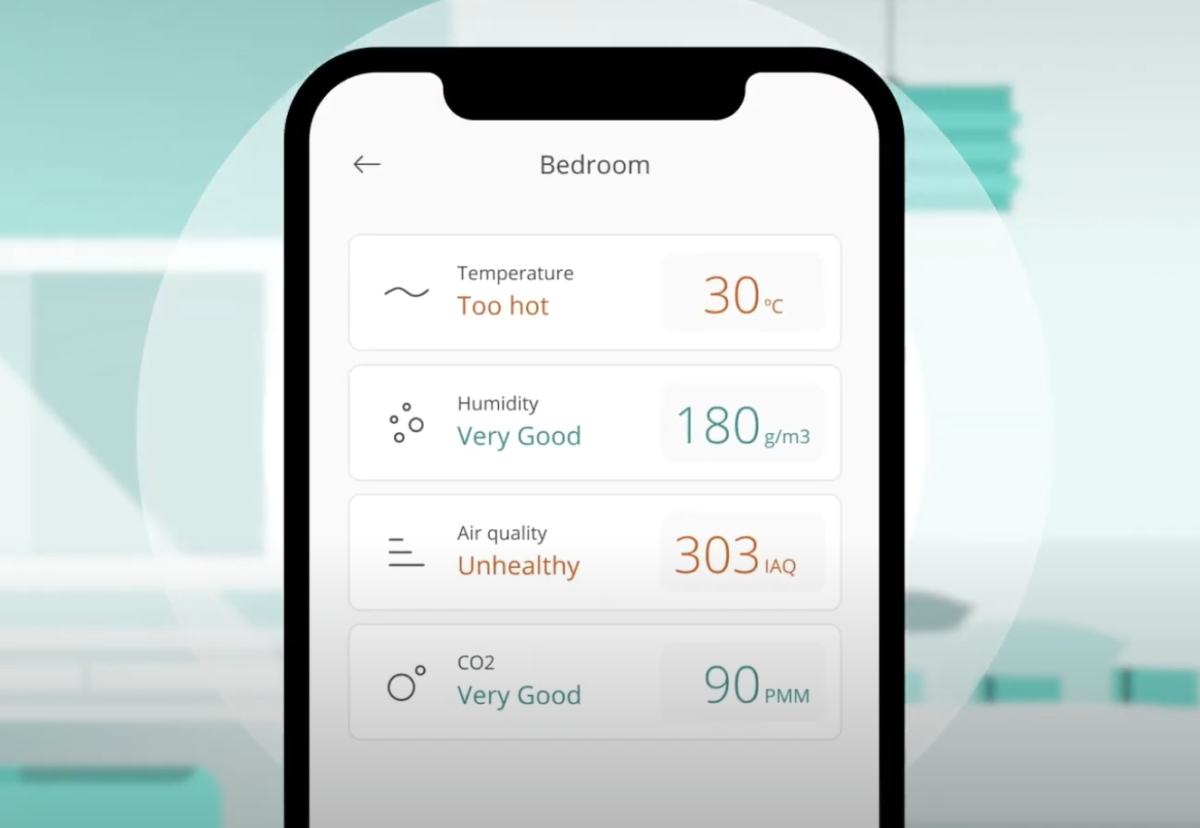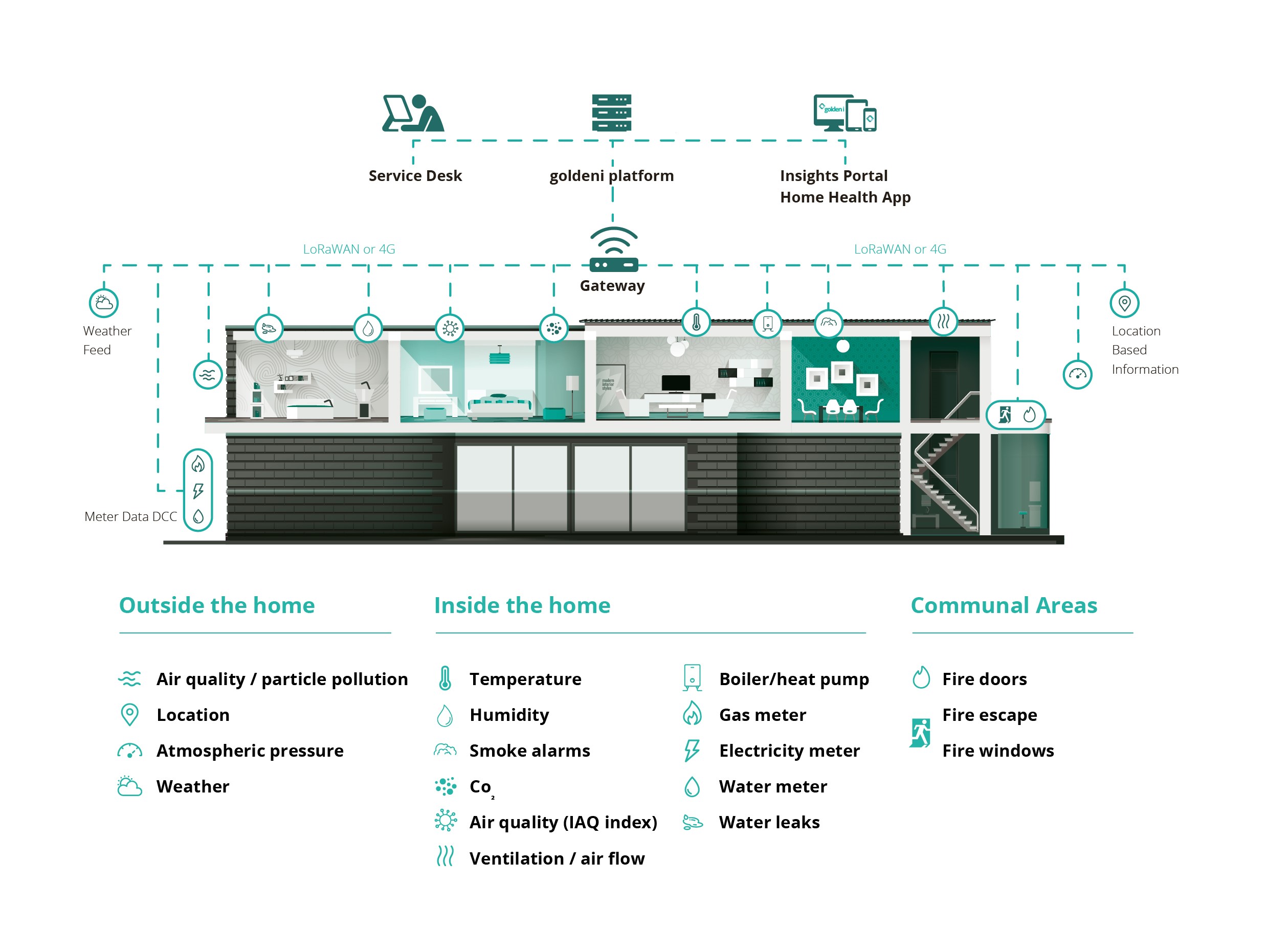The goldeni (pronounced golden eye) system developed by data scientists working for Morgan Sindall Property Services hooks up with commercially available ‘Internet of things’ sensors to provide real-time data about the health of a building and internal environment of individual tenants’ homes.
It can identify water leaks in real-time, and spots when a boiler needs to be serviced so that preventative action can be taken before a problem escalates.
The Goldeni software-based cloud platform collects temperature, air pressure, light levels, humidity and carbon dioxide data, as well as monitoring heating systems and electricity and gas consumption.
Morgan Sindall estimates that by helping landlords and tenants identify potential maintenance issues before they occur and remediate leaks before they escalate, goldeni could help the country’s social housing landlords potentially save over £550m per year.
Morgan Sindall’s software compiles the data to provides social housing landlords and tenants with clear, practical actions for more effective home operation.
For example, from collected ventilation data, goldeni can recommend opening more windows to ensure homes are less susceptible to mould.
By tracking which homes are using central heating too often or too little, goldeni can also help users identify properties that are in fuel poverty or requiring additional insulation.
John Morgan, Chief Executive of the Morgan Sindall Group said: “The launch of goldeni, our first technological innovation for the sector, represents an important milestone not just for Morgan Sindall but also for social housing as a whole.
“By giving clues to potential issues within homes even before they occur, it can help those living in social housing have healthier, safer, more energy efficient homes, as well as saving social housing providers costs.”
“While we’re initially focusing on social housing, its ability to provide an instant overview of a building’s health in real-time means that goldeni would just be as useful for commercial and private residential property owners as well, and that’s something we’ll be looking to roll out in the future.”















































 (300 x 250 px) (1).gif)







